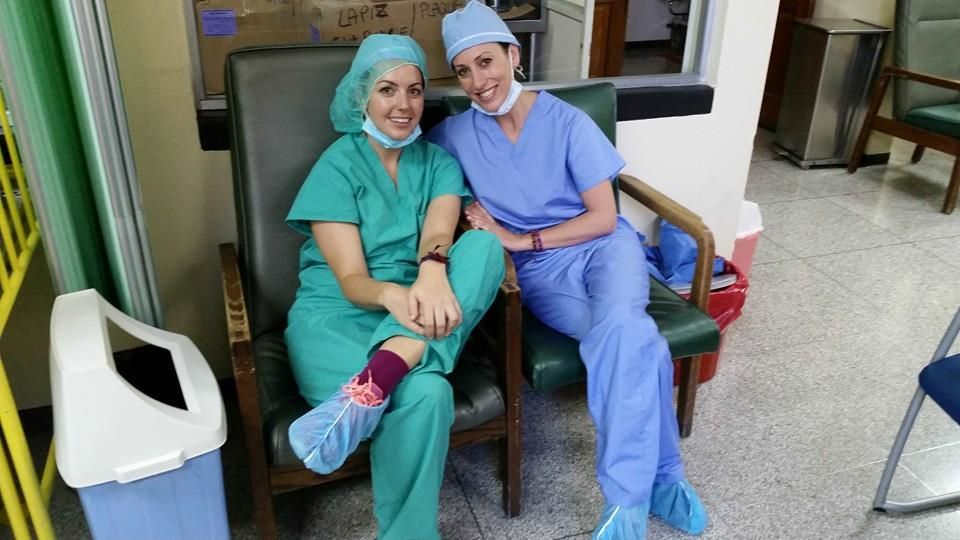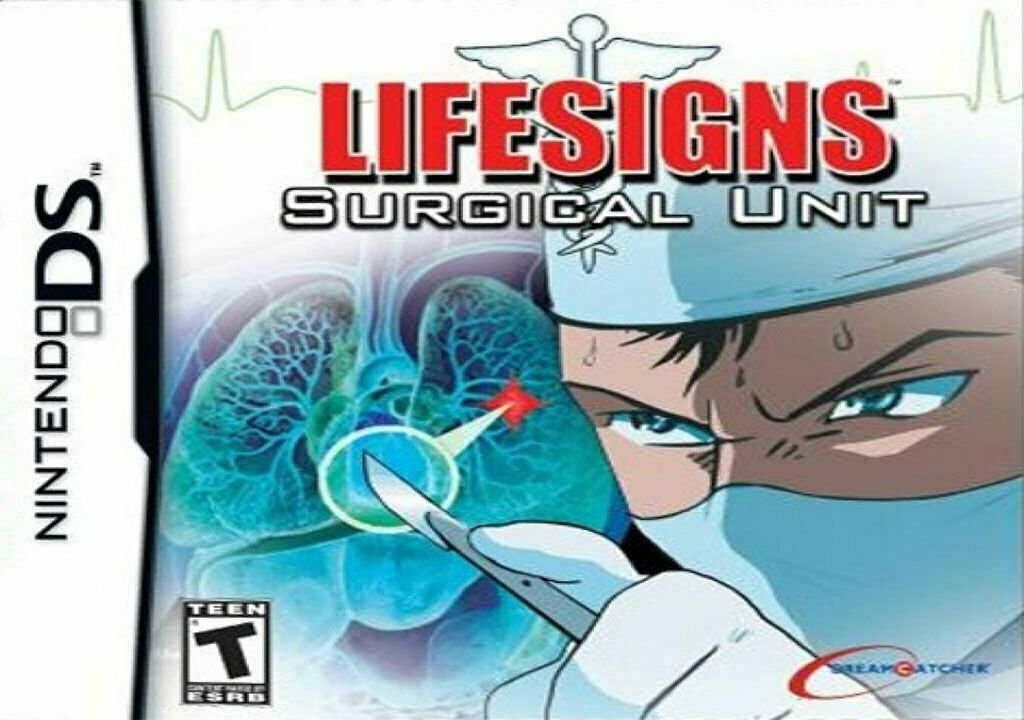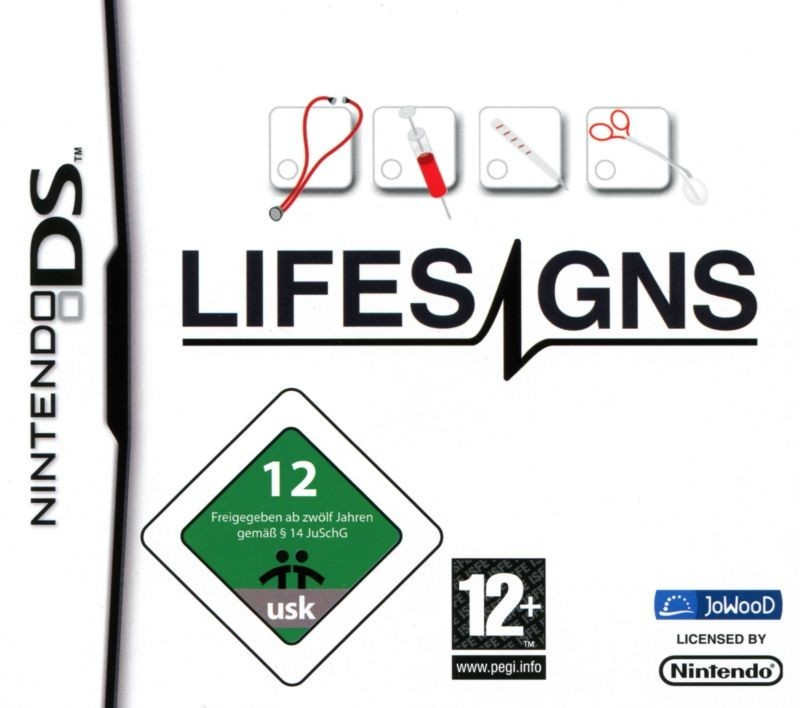As the field of medicine continues to advance, so too do the tools and technologies used by medical professionals. One such tool that has gained popularity in recent years is simulation-based training through video games. Games like LifeSigns: Surgical Unit offer a unique opportunity for medical students and practitioners alike to engage with surgical procedures in a virtual setting, allowing them to hone their skills before ever stepping foot into an operating room.
LifeSigns: Surgical Unit is a game developed by Spike Chunsoft for Nintendo DS in 2007. The game’s premise centers around the player assuming the role of a young doctor who must perform surgeries on various patients while also managing interpersonal relationships with colleagues and superiors. Beyond its engaging storytelling, however, LifeSigns boasts highly realistic depictions of surgical procedures that require players to use actual medical terminology and techniques.
In this article, we will explore the benefits that games like LifeSigns can offer those pursuing careers in medicine or seeking further education as healthcare professionals. We’ll discuss how simulating surgery through gaming can improve hand-eye coordination, decision-making abilities under pressure, and communication skills within interdisciplinary teams. Additionally, we’ll examine some criticisms leveled against such games regarding their potential impact on patient safety and ethical considerations surrounding virtual practice environments.
Overall, our aim is to provide an informative overview of this unique approach to medical training while highlighting both its potential advantages and limitations as part of ongoing efforts toward improving healthcare outcomes worldwide.
- Overview and introduction to LifeSigns: Surgical Unit, a medical simulation video game
- The game’s mechanics and gameplay elements that simulate surgical procedures, anesthesia administration, patient monitoring, and diagnosis of illnesses
- The educational value of the game in providing realistic scenarios for medical students and professionals to practice decision-making skills in emergency situations
- Analysis of the accuracy of the game’s representation of real-world medical practices, equipment, and medications used in surgery
- Exploration of the ethical considerations involved with using a game as a teaching tool for life-or-death situations involving patients’ health outcomes
- Comparison to other medical simulation games on the market and how LifeSigns: Surgical Unit stands out from its competitors
- Discussion on how playing this type of video game can improve cognitive abilities such as hand-eye coordination, attention span, problem-solving skills under pressure or stress including risk management strategies used by experienced surgeons during operations or post-operative care periods when things might go wrong unexpectedly without warning signs present
- Future opportunities for advancing technology within video games like LifeSigns: Surgical Unit that may help revolutionize training methods for aspiring surgeons or existing healthcare workers through AI-assisted decision making algorithms – improving patient outcomes while reducing errors made by human error factors such as fatigue level fluctuations which are not noticeable until it is too late sometimes resulting injury risks higher than expected due lack attention paid because they were tired after long shifts working overtime regularly over extended periods without breaks necessary stay alert throughout entire shift hours worked per day basis
Overview and introduction to LifeSigns: Surgical Unit, a medical simulation video game
The game provides an in-depth experience of what it is like to be a surgeon, performing various operations on patients with different ailments and conditions. The game features realistic surgical procedures that require players to use precise movements and tools to complete them successfully.

The gameplay mechanics revolve around using the touchscreen interface of the Nintendo DS console, where players perform intricate surgeries such as bypassing clogged arteries or removing tumors from organs. As players progress through levels, they encounter increasingly complex operations requiring more skill and expertise under pressure.
One of the unique aspects of LifeSigns: Surgical Unit is its focus on patient care outside of surgery. Players must interact with their patients, gather information about their symptoms and history, diagnose illnesses accurately, prescribe medication correctly and monitor recovery rates post-operation.
Overall, LifeSigns: Surgical Unit offers a unique perspective on the world of medicine while also providing an engaging gameplay experience for those interested in simulation games. With its attention to detail coupled with immersive gameplay mechanics, this title stands out among other medical simulations available in today’s market for gamers who seek intellectual challenge along with entertainment value.
The game’s mechanics and gameplay elements that simulate surgical procedures, anesthesia administration, patient monitoring, and diagnosis of illnesses
The game’s mechanics and gameplay elements are designed to simulate surgical procedures, anesthesia administration, patient monitoring, and diagnosis of illnesses. These features add depth and realism to the gameplay, making it an enjoyable experience for both casual gamers and medical professionals.
The surgical procedure section of the game requires players to use precise hand movements using the DS stylus to perform surgeries on simulated patients. Players must be careful while performing surgeries as they can cause irreversible damage if not executed correctly. Moreover, anesthesia administration plays a vital role in ensuring that patients remain stable throughout surgery. By administering medication based on vital signs such as blood pressure or heart rate levels carefully displayed during gameplay, players learn about proper drug dosages and their effects.
Furthermore, patient monitoring involves keeping track of patients’ vitals as well as responding quickly when emergency events occur during operations or post-surgical recovery period by selecting appropriate treatments from a list provided by the game engine. Finally,
accurate diagnoses require attention-to-detail where users have access to virtual x-rays scans which help them identify issues with internal organs or bones while providing recommendations for further treatment options.
In conclusion LifeSigns: Surgical Unit provides comprehensive yet engaging education modules aimed at enhancing decision-making skills among aspiring surgeons while promoting critical thinking abilities within healthcare practices more broadly speaking.
The educational value of the game in providing realistic scenarios for medical students and professionals to practice decision-making skills in emergency situations
Games offer a unique learning experience that promotes active engagement and enhances critical thinking skills. In particular, the game provides realistic scenarios for medical students and professionals to practice decision-making skills in emergency situations.
Through gameplay, players are exposed to complex cases that require quick thinking and problem-solving abilities. Such exposure allows learners to develop faster reflexes and aids them in making informed decisions under pressure – something essential when working in fast-paced environments such as an emergency room.
Moreover, the game also features a diverse range of patients with varying conditions- from minor injuries through to life-threatening illnesses. This diversity helps enhance players’ clinical knowledge while promoting empathy towards their patients by giving them insight into patient experiences beyond their own scope of practice.
Overall, it is clear that games like LifeSigns: Surgical Unit have immense potential for improving both medical education and patient care delivery. By providing engaging real-life scenarios for learners to hone their decision-making skills, we can create better-prepared healthcare professionals who will ultimately improve patient outcomes.
Analysis of the accuracy of the game’s representation of real-world medical practices, equipment, and medications used in surgery
As a professional expert on this subject matter, I must say that overall, the game does an excellent job of simulating surgical procedures and medical practices.
The attention to detail in the depiction of various tools and equipment used during surgery is impressive. The game provides an accurate portrayal of common surgical instruments such as scalpels, forceps, retractors, clamps and scissors. Moreover,the use of these tools seems realistic based on their proper sequence while performing operations.
In terms of medication usage during surgeries depicted in-game it is commendable to see how they accurately represent each drug’s specific intended effects or side-effects when administered at incorrect dosages or intervals which adds another layer of realism into the gameplay experience.The players can also practice vital sign monitoring before giving anaesthesia using pulse oximetry machines for blood oxygen saturation levels which helps them understand practical application concepts better.
Overall,LifeSigns:Surgical Unit serves as not just entertainment but also has educational value due to its detailed yet precise simulation techniques making it an effective tool for training students aspiring to become future healthcare professionals.
Exploration of the ethical considerations involved with using a game as a teaching tool for life-or-death situations involving patients’ health outcomes
However, when it comes to life-or-death situations involving patients’ health outcomes, there are ethical considerations that must be explored before implementing such a tool. One of the primary concerns is ensuring that the game accurately reflects real-life scenarios and provides students with realistic training.
In addition to accuracy, it is also crucial to consider how the game may affect the emotional well-being of students and patients. Life-or-death situations can be incredibly stressful, and using a game to simulate these scenarios could potentially trigger trauma or anxiety in some individuals. Therefore, it is important to provide proper support for players throughout the process and ensure that they have access to resources if needed.
Finally, there are also ethical considerations around commercialization and profit-making from healthcare education. While games like LifeSigns: Surgical Unit may provide an effective teaching tool for medical professionals, there needs to be transparency regarding who benefits financially from their creation and distribution.

Overall, while games like LifeSigns: Surgical Unit have significant potential as educational tools in healthcare settings, careful consideration must be given to ethical implications surrounding accuracy, emotional impact on participants and stakeholders affected by patient outcomes – including family members -, accessibility (e.g., technology- & language-wise) , transparency about financial motives behind their development/distribution .
Comparison to other medical simulation games on the market and how LifeSigns: Surgical Unit stands out from its competitors
However, LifeSigns: Surgical Unit stands out from the crowd for several reasons. Firstly, its realistic portrayal of surgeries is unparalleled in other games in this category. The game uses real-life surgical techniques and equipment, allowing users to learn about different procedures while also enjoying a fun gaming experience.
Secondly, LifeSigns: Surgical Unit places a strong emphasis on patient care and communication between doctors and patients. This aspect of the game sets it apart from others by emphasizing empathy as an important skill for healthcare professionals to possess. Players must communicate with their virtual patients effectively in order to make accurate diagnoses and provide effective treatments.
Finally, LifeSigns: Surgical Unit offers a unique career progression system that allows players to advance through various levels of expertise as they perform more surgeries successfully. This creates a sense of accomplishment for players and encourages them to continue playing the game long-term.
Overall, LifeSigns: Surgical Unit is unmatched when it comes to providing realistic surgical simulations combined with an emphasis on patient care and communication skills development within a career progression framework – making it one-of-a-kind among existing medical simulation games available today.
Discussion on how playing this type of video game can improve cognitive abilities such as hand-eye coordination, attention span, problem-solving skills under pressure or stress including risk management strategies used by experienced surgeons during operations or post-operative care periods when things might go wrong unexpectedly without warning signs present
These attributes are essential for experienced surgeons during operations and post-operative care periods when things might go wrong unexpectedly without warning signs present.
Hand-eye coordination is crucial in surgery since it allows the surgeon to maneuver instruments with precision while keeping their eyes on the patient’s progress. Video games help players develop this skill through repeated actions that require accurate timing of movements. Attention span is also critical during surgery as a lack of focus could lead to errors. Video games enhance this attribute by requiring players to concentrate on multiple stimuli simultaneously while still retaining an awareness of what is happening in the game world.

Problem-solving skills are vital during surgeries since unexpected complications may arise at any time, making quick decisions necessary. Playing complex video games like LifeSigns: Surgical Unit encourages players to think critically about how they approach challenges and find solutions amidst unpredictability and uncertainty.
Experienced surgeons use risk management strategies when performing procedures because they understand that even a minor mistake can have significant consequences. Similarly, playing LifeSigns: Surgical Unit requires careful planning and decision-making with long-term outcomes in mind. Thus, playing video games like these enhances cognitive abilities required for successful surgical outcomes while providing enjoyable recreational activities for individuals looking to hone their mental abilities outside of surgery rooms!

Future opportunities for advancing technology within video games like LifeSigns: Surgical Unit that may help revolutionize training methods for aspiring surgeons or existing healthcare workers through AI-assisted decision making algorithms – improving patient outcomes while reducing errors made by human error factors such as fatigue level fluctuations which are not noticeable until it is too late sometimes resulting injury risks higher than expected due lack attention paid because they were tired after long shifts working overtime regularly over extended periods without breaks necessary stay alert throughout entire shift hours worked per day basis
One potential area of advancement lies in AI-assisted decision-making algorithms that can help improve patient outcomes while reducing the errors caused by human factors such as fatigue level fluctuations. With AI-powered tools, medical professionals can receive real-time feedback on their performance, allowing them to identify areas where they need improvement and adjust their approach accordingly.
Another exciting opportunity for advancing technology within video games like LifeSigns: Surgical Unit is the integration of virtual reality (VR) and augmented reality (AR) technologies with surgical training. This would enable trainees to practice complex procedures in a safe, controlled environment without putting patients at risk. By immersing themselves in realistic simulations that mimic real-life scenarios, aspiring surgeons could develop advanced skills without needing access to expensive equipment or risking injury.
Overall, there are many potential avenues for advancing technology within video games like LifeSigns: Surgical Unit that could help revolutionize training methods for healthcare workers. As we continue to push forward with these advancements, it’s likely that we’ll see significant improvements in patient outcomes and reductions in medical errors – ultimately leading to better quality care across the board.
In conclusion, LifeSigns: Surgical Unit is a groundbreaking game that combines entertainment and education in an innovative way. Its realistic surgical operations and medical procedures provide players with a unique opportunity to learn about the human body and how it functions.
The game’s interactive features allow players to step into the shoes of a surgeon, making critical decisions under pressure while putting their knowledge of anatomy and physiology to the test. The storyline also provides valuable lessons related to teamwork, responsibility, communication skills, and time management.
LifeSigns: Surgical Unit has received accolades from both gamers and medical professionals for its accurate depiction of medical procedures. It serves not only as an entertaining pastime but also as an educational tool that can help aspiring healthcare professionals hone their skills.
Overall, LifeSigns: Surgical Unit represents a significant advancement in gaming technology by bridging the gap between entertainment and education. It offers a unique experience that immerses players in the world of medicine while providing them with valuable knowledge regarding health care practices. As such, it sets itself apart as one of the most innovative games available on the market today.
Read More:- Unleash Your Inner Lawyer with Miami Law Game – Experience the Thrill!.
- Discover the Emotional Journey of Game Finding Paradise: A Heartfelt Adventure (69 characters).
- Experience Intense Warfare in Joint Operations: Typhoon Rising Game – Thrilling Battles Await!.
- Experience the Ultimate Island Adventure with Tropico Game – Get Ready to Rule in Paradise!.
- Embark on an Emotional Journey to the Moon with this Captivating Game – Play Now!.
- Discover the Fascinating World of Humanity: Play the Ultimate Game Today!.
- Get Ready for the Ultimate Battle with Total Annihilation Game – Unleash Your Strategic Genius! (68 characters).